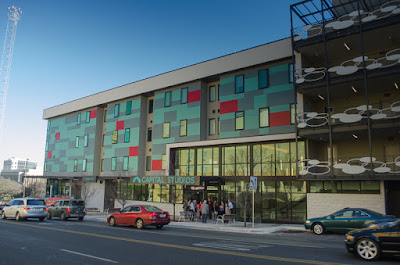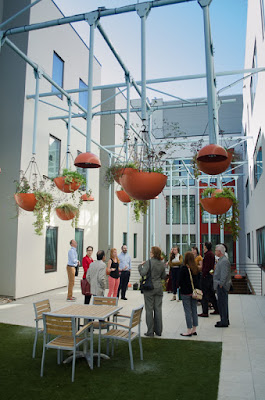Although Austin, Texas, may be considered affordable by East Coast standards, housing costs have increased dramatically in recent years, making the city less and less affordable for lower-income households. Current data indicates that there is a shortage of 48,000 units for households earning less than $25,000 per year, up from 37,000 five years ago. This deficit of housing that is affordable for low-income households impacts the entire community; without adequate access to affordable housing, many low-income households are forced to search for housing further from the city, resulting in greater transportation costs for those families and increased road congestion for all.
As a participant of the Inclusive Communities Working Group (ICWG), I’ve had the opportunity to learn about strategies employed in other communities to increase housing affordability and have evaluated them for their potential

to address issues we’re experiencing in Austin. Thus far, the ICWG has identified the major housing challenges facing our communities, discussed inclusive housing policy, assessed different opportunity mapping approaches and compared land use regulations to increase affordable rental supply and strategies for getting them enacted. Each city has different challenges and regulatory environments, but sharing experiences has led to insights about new ways to approach issues in our own communities.
The City of Austin welcomed members of the ICWG to Austin on Thursday and Friday, March 3 and 4, 2016, for discussions about how to better communicate to the public about the need for affordable housing and the potential strategies to preserve and create it. The Austin session started with a tour of Capital Studios, the first affordable housing development built in downtown Austin in 45 years.
The ICWG participants learned about the funding mechanisms used and challenges of developing in downtown Austin, including designing around a view corridor and having to include parking for a neighboring building. Capital Studios

includes efficiency apartments for 135 low-income individuals, including downtown service workers and those who have experienced homelessness, to live in the heart of downtown. The development was funded with $11.7M in state low-income housing tax credits, leveraged by $4.7M in City of Austin funding, and another $5M from other sources. It includes over 30 units of Permanent Supportive Housing for individuals who have experienced chronic homelessness.
The topic of Building Acceptance of Inclusion through communications was perfect for the Austin meeting of the ICWG, as the City of Austin is about to begin a process to gather public input for the city’s first housing plan. The group provided ideas and insight about the most effective communication strategies for this topic. I’ll report back at a future meeting to let the group know how the outreach strategy worked!
Guest author Erica Leak is a staffer at the City of Austin Department of Neighborhood Housing and Community Development

